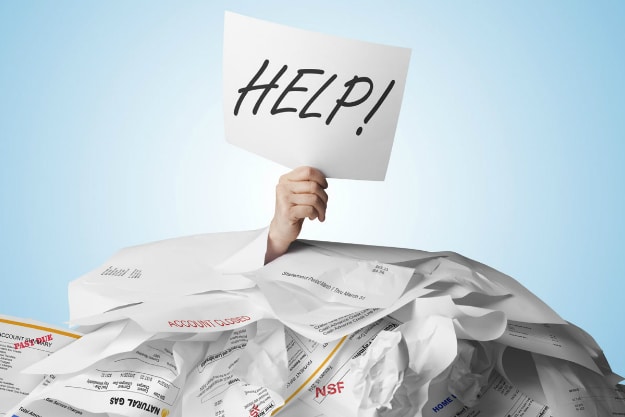When you owe thousands or even hundreds of thousands of dollars on things like houses, student loans, cars, and credit cards, it never feels like you’re free. To enjoy life to the fullest, you’ll purchase extras or take special trips, but you can’t completely remove the shackle that is your monthly payments. Therefore, debt will always keep you shackled.
According to studies, if you’re feeling captive to your debt, you’re not alone. The total consumer debt in the United States is $2.43 trillion, including more expensive loans for homes and businesses. On a more personal level, the average household credit card debt is $15,800.
Despite high volumes of debt, people are taking longer than ever to pay the money back. In fact, many people will never pay off their debts, leaving thousands for their family to settle after they pass away.
Debt will drag you down and make it difficult to live the life you’ve always dreamed of. If you’re ready to shake off this negative presence, you’ll need some excellent debt reduction strategies.
1. Cut Up Credit Cards
The very first step for anyone looking to eliminate debt is to stop the problem altogether. Make it impossible to get more credit card debt by cutting up your credit cards. Once you’ve done so, you’ll be forced to live a lifestyle within your means rather than above and beyond.
2. Live Within A Budget
The second step will be to create a budget that you can sustain without the use of credit cards. It probably means cutting back on some of your lifestyle choices. Even if you can’t eat out daily and you have to cut cable for a year, it’s better than living bogged down by what you owe to other people.
Budgeting isn’t easy, but it’s better if you find a tool that works for you. Browse different budgeting options to find one that meets your needs. You might try You Need a Budget (YNAB) or Mint, which are among two of the more popular budgeting apps. They help you allocate every dollar of your monthly income and get out of the paycheck to paycheck cycle.
3. Refinance Your Loans
Now that you’ve gotten your day-to-day spending under control, you can tackle the bigger debts. Look for ways to lower your interest rates so that you pay less in the long run.
Often, you’ll find that you’re eligible for a lower interest rate several months or years after taking out a loan because your credit has improved. Look into refinancing auto, home, student, and other loans for a better interest rate and repayment terms. Talk to a financial institution or loan refinancing broker about your options.
4. Use Your Savings
Start your debt free journey by using your savings or another large sum of money to reduce your balance. It can feel like you’ll never get to the end of your debt when you’re only making small payments, but if you can take a huge chunk of your debt out of the equation and lower your overall interest charges, you’ll be in a much better position to pay off your debt.
5. Make Multiple Monthly Minimum Payments
Interest charges are usually allotted the same day that your monthly minimum payment is due. That means if you make more than one monthly minimum payment before the deadline, there will be less interest charged as a result.
Additionally, making two minimum payments each month instead of one will lead to paying off your debt in half the time.
6. Try A Balance Transfer
If you’re trying to pay off your credit card debt quickly, a balance transfer can be a smart solution. It involves transferring a portion of your balance to a 0 percent APR credit card. Most 0 percent APR offers are only for a limited time, so only transfer as much as you would be able to pay off during the offer’s time period.
As a word of caution, a balance transfer is a good way to save on interest, but it’s not always the best solution. Most balance transfers come with a fee, so you should only make the transfer if the fee will be less than the interest charged on your balance.
7. Reward Yourself
It’s important to establish good habits that will get you out of debt and keep you there, but oftentimes you need a little incentive. Plan for a vacation or some other reward for achieving your goal.
Just don’t plan to go into debt again. Only give yourself a vacation if you pay off your debt and save up the money to go. It will feel incredible to make your first big purchase without paying it off for several months after, encouraging you to maintain your debt free streak.

COMMENTS